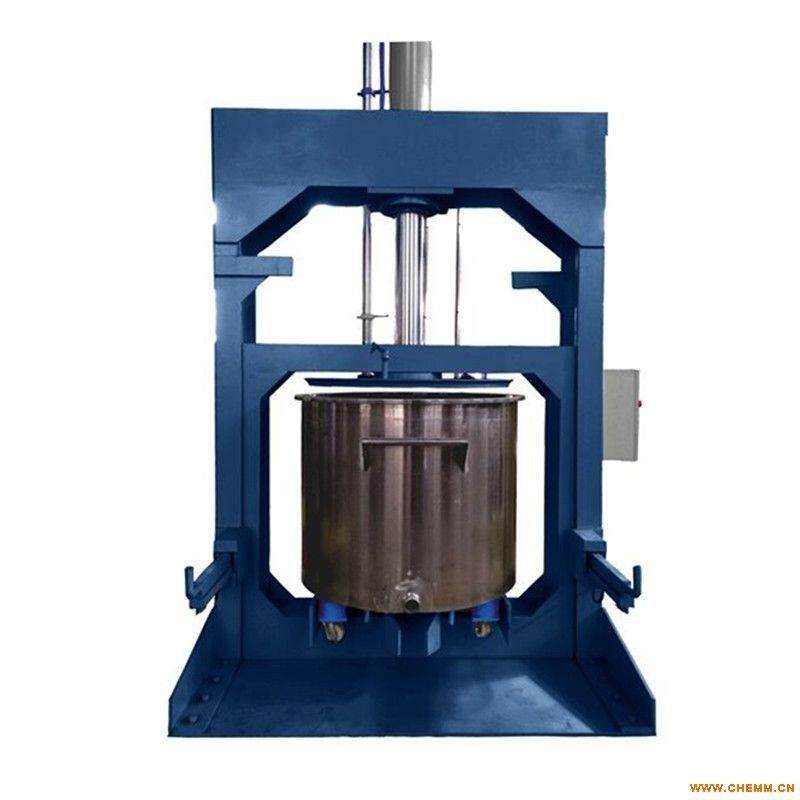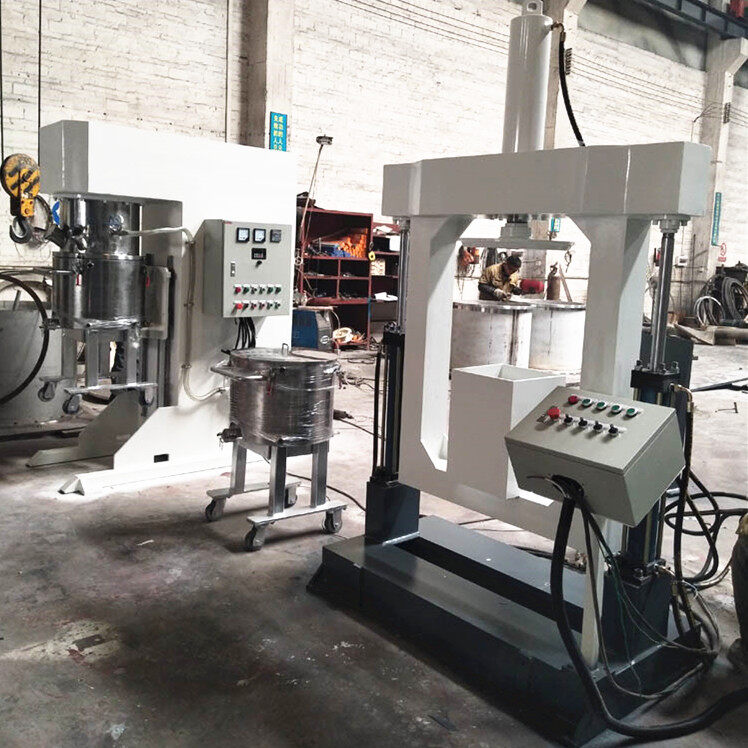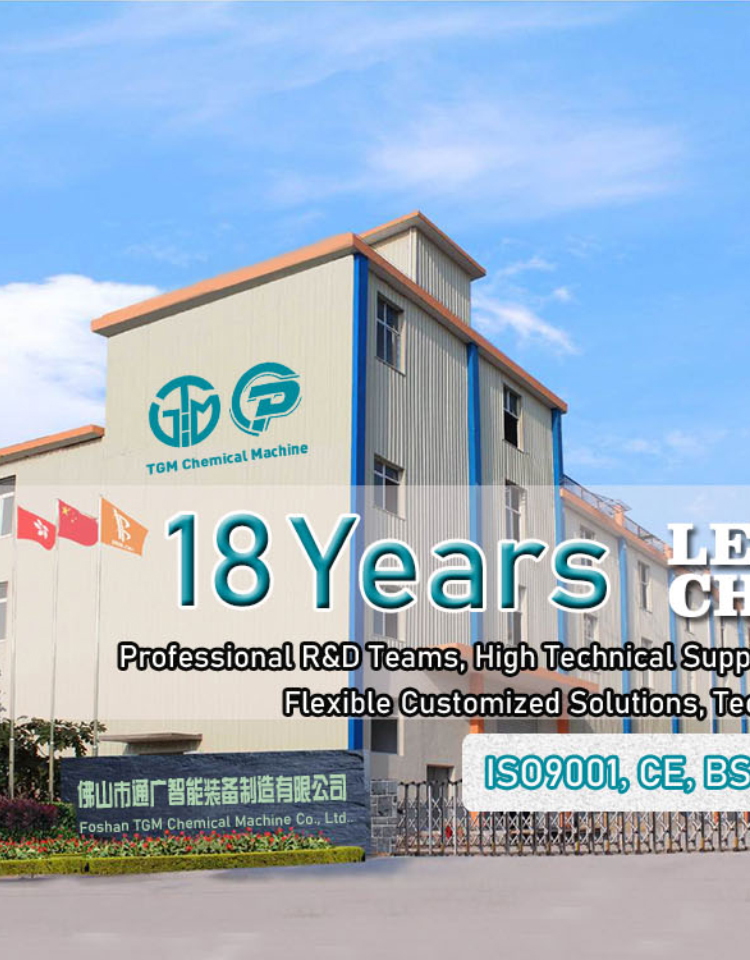Email cannot be empty
Password cannot be empty
Email format error
Email cannot be empty
Email already exists
6-20 characters(letters plus numbers only)
The password is inconsistent
Email format error
Email cannot be empty
Email does not exist
6-20 characters(letters plus numbers only)
The password is inconsistent


High Viscosity Pressure Machine
Introduction: The Power of Pressure in High Viscosity Applications
In the world of industrial manufacturing, the ability to process high viscosity materials is a critical capability. High viscosity pressure machines are the unsung heroes in this domain, providing the necessary force to shape, mold, and process materials that would be otherwise impossible to handle. These machines are indispensable in a variety of industries, from food and pharmaceuticals to ceramics and chemical processing. This blog post will explore the fascinating world of high viscosity pressure machines, revealing their inner workings, applications, and why they are essential tools in modern manufacturing.
The Challenge of High Viscosity Materials
Understanding Viscosity
Viscosity refers to a fluid's resistance to flow. High viscosity materials, such as thick oils, pastes, gels, and slurries, are challenging to work with due to their sticky and dense nature. Traditional processing methods often fall short when dealing with these substances.
The Need for Specialized Equipment
Processing high viscosity materials requires specialized machinery capable of exerting significant pressure and force. High viscosity pressure machines are designed to meet this challenge, offering precise control and high power output.
Key Features of High Viscosity Pressure Machines
Advanced Pressure Systems
These machines are equipped with robust pressure systems that can generate the high pressures needed to process viscous materials. This can include hydraulic or pneumatic systems, which provide the necessary force for compression, molding, or extrusion processes.
Precision Control
High viscosity pressure machines often feature advanced control systems that allow for precise regulation of pressure and temperature. This ensures consistent processing and helps to avoid damage to sensitive materials.
Durable Construction
Given the demanding nature of the applications they serve, these machines are built with durability in mind. They typically use high-quality materials and robust construction techniques to withstand the rigors of continuous operation.
Customizable Options
Different applications may require different configurations. High viscosity pressure machines often offer a range of customizable options, such as varying chamber sizes, pressure ranges, and additional features like temperature control.
Applications Across Industries
Food Processing
In the food industry, high viscosity pressure machines are used for processes such as the production of sauces, jams, and other thick food products. They ensure that these products are uniformly mixed and processed.
Pharmaceutical and Cosmetics
For the production of ointments, creams, and other high viscosity pharmaceutical and cosmetic products, these machines provide the necessary mixing and processing capabilities.
Chemical Processing
In the chemical industry, high viscosity pressure machines are used for the processing of various substances, including the production of adhesives, sealants, and other chemical products.
Ceramics and Materials Science
For the processing of high viscosity ceramic slurries and other advanced materials, these machines offer the required pressure and control for precise shaping and forming.
The Importance of Maintenance and Safety
Regular Maintenance
Given the high pressures and forces at work, regular maintenance is crucial for the longevity and reliability of high viscosity pressure machines. This includes checking for wear and tear, lubricating moving parts, and ensuring that all systems are functioning correctly.
Safety Precautions
Operating high viscosity pressure machines requires adherence to strict safety protocols. This includes proper training of operators, use of safety equipment, and implementation of safety procedures to prevent accidents and injuries.
Choosing the Right High Viscosity Pressure Machine
Assessing Your Needs
Before investing in a high viscosity pressure machine, it's essential to assess your specific processing needs. Consider factors such as the viscosity of the materials you'll be working with, the volume of production, and any special requirements for your process.
Researching Manufacturers
Research different manufacturers and suppliers to find a machine that meets your needs. Look for companies with a reputation for quality, reliability, and good customer service.
Considering Cost and ROI
While upfront costs are important, also consider the return on investment that a high viscosity pressure machine can provide. The efficiency and capabilities of these machines can lead to significant savings in production time and material costs.
After-Sales Support
Ensure that the manufacturer or supplier offers after-sales support, including warranty, maintenance services, and technical assistance.
Conclusion: The Unyielding Power of High Viscosity Pressure Machines
High viscosity pressure machines are powerful tools that play a crucial role in the processing of challenging materials across various industries. Their ability to exert high pressures with precision control makes them indispensable for a wide range of applications. By understanding the key features, applications, and considerations for maintenance and safety, businesses can harness the full potential of these machines to improve their production processes and efficiency.

